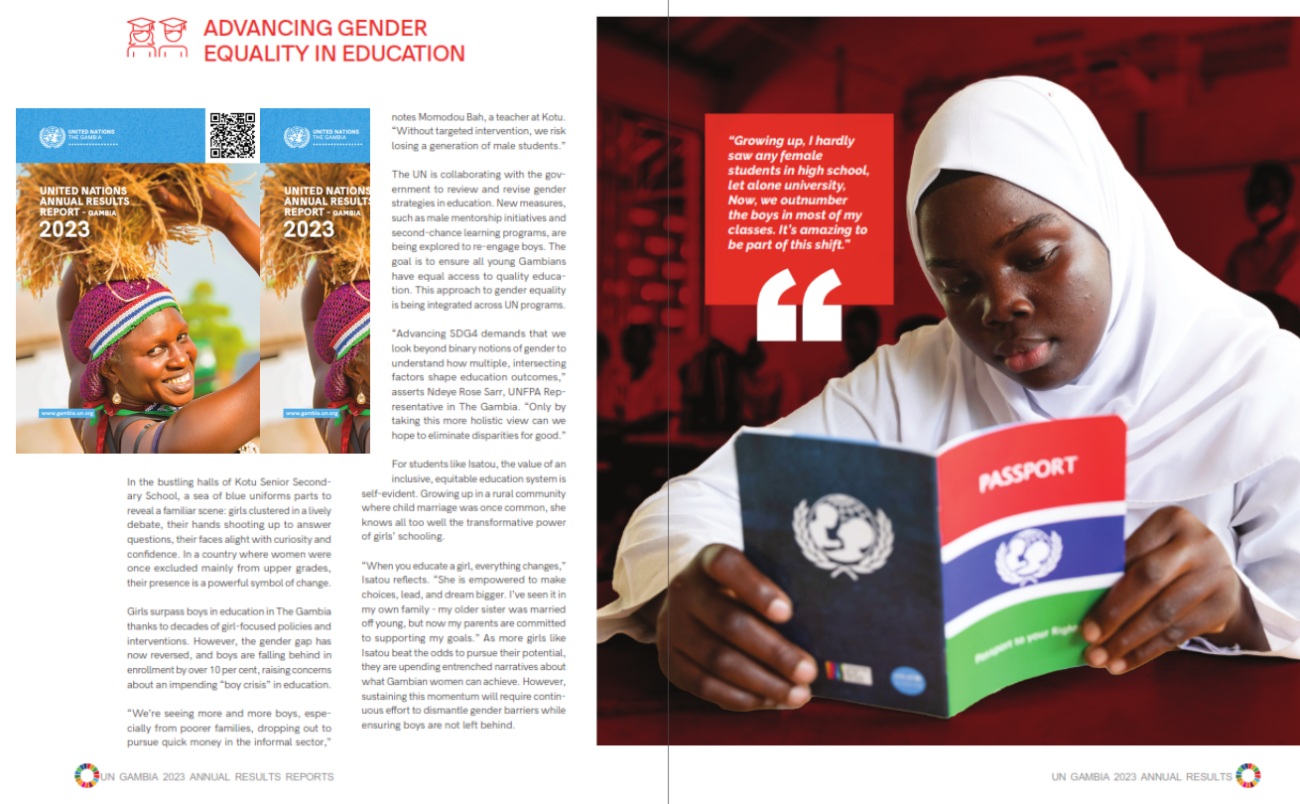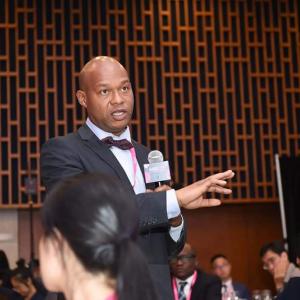In the bustling halls of Kotu Senior Secondary School, a sea of blue uniforms parts to reveal a familiar scene: girls clustered in a lively debate, their hands shooting up to answer questions, their faces alight with curiosity and confidence. In a country where women were once excluded mainly from upper grades, their presence is a powerful symbol of change.
Girls surpass boys in education in The Gambia thanks to decades of girl-focused policies and interventions. However, the gender gap has now reversed, and boys are falling behind in enrollment by over 10 per cent, raising concerns about an impending “boy crisis” in education.
“We’re seeing more and more boys, especially from poorer families, dropping out to pursue quick money in the informal sector,” notes Momodou Bah, a teacher at Kotu. “Without targeted intervention, we risk losing a generation of male students.”
The UN is collaborating with the government to review and revise gender strategies in education. New measures, such as male mentorship initiatives and second-chance learning programs, are being explored to re-engage boys. The goal is to ensure all young Gambians have equal access to quality education. This approach to gender equality is being integrated across UN programs.
“Advancing SDG4 demands that we look beyond binary notions of gender to understand how multiple, intersecting factors shape education outcomes,” asserts Ndeye Rose Sarr, UNFPA Representative in The Gambia. “Only by taking this more holistic view can we hope to eliminate disparities for good.”
For students like Isatou, the value of an inclusive, equitable education system is self-evident. Growing up in a rural community where child marriage was once common, she knows all too well the transformative power of girls’ schooling.
“When you educate a girl, everything changes,” Isatou reflects. “She is empowered to make choices, lead, and dream bigger. I’ve seen it in my own family - my older sister was married off young, but now my parents are committed to supporting my goals.”
As more girls like Isatou beat the odds to pursue their potential, they are upending entrenched narratives about what Gambian women can achieve. However, sustaining this momentum will require continuous effort to dismantle gender barriers while ensuring boys are not left behind.





